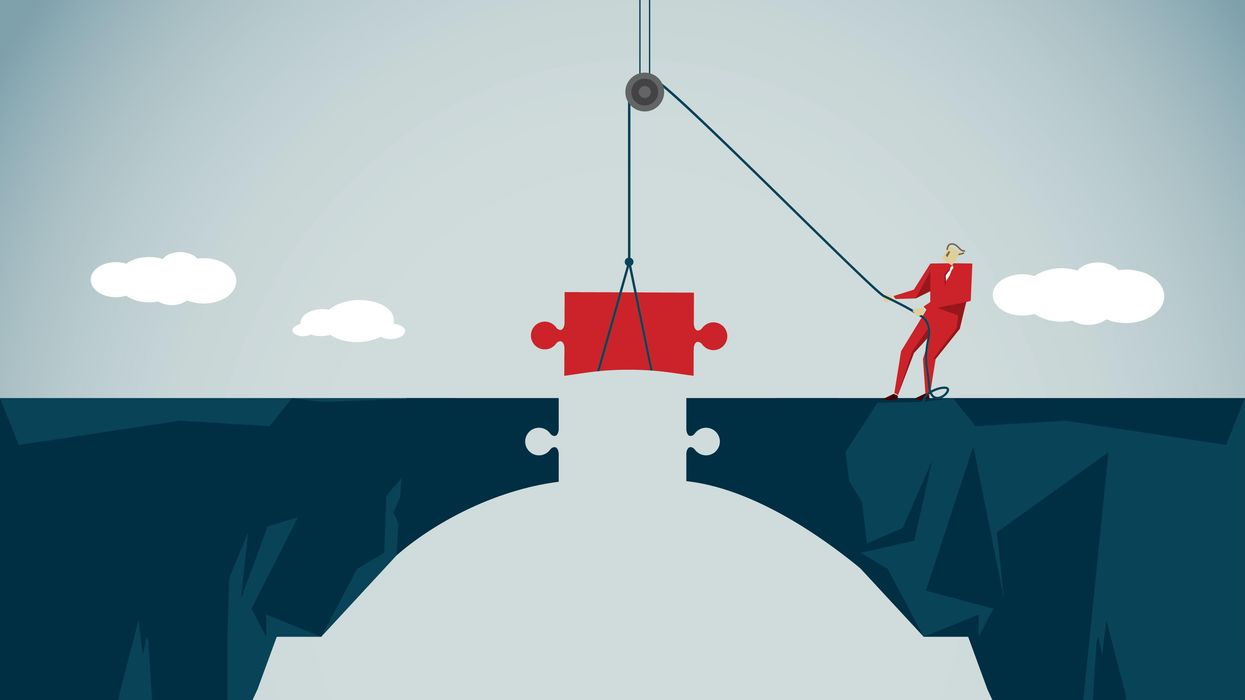Mason is executive director of the Change Collective, a national leadership network that connects and trains emerging leaders to solve problems at the community level. Han serves on the Change Collective’s Advisory Council and is a professor at Johns Hopkins University, where she serves as the inaugural director of the Stavros Niarchos Foundation Agora Institute.
Political divides are nothing new, but in recent years it seems as though our political polarization has reached new levels of acrimony. Cable news and social media would have us believe that the people who disagree with us are not just seeing things from another perspective — and that we must demonize the other side as wrongheaded at best, or malicious at worst.
Even as our nation is becoming more diverse every day, we struggle with a broken culture that does not know how to navigate social differences. Pluralism teaches us that recognizing our differences as assets makes individuals, communities and our democracy more vibrant, connected and understanding. It is a means to pursue equity and justice, and to create change that will increase connectivity and civic participation.
But through both academic research and experience in the nonprofit sector, we have learned that the solutions are hiding in plain sight. A key way forward to bridge divides and strive for a more pluralistic society starts with equipping people for meaningful civic action at the local level.
Social movements have made some of the most meaningful large-scale, societal changes possible throughout American history by building broad coalitions of diverse people agitating for a better world. How do they build and sustain pluralistic coalitions? Contrary to popular belief, research shows that building the skills to navigate differences starts with giving people opportunities to engage meaningfully in solving real-world problems at the center of their daily lives.
Some grassroots efforts make the mistake of trying to make involvement as easy as possible — allowing people to outsource the solutions instead of building them together. Making it too easy for people to get involved paradoxically also makes it too easy for them to leave when conflict or difference arises. Putting people in settings where they build durable connections with each other and learn from one another allows them to solve problems together, creating movements that are effective in making change and fostering real connections, even among people who are different from each other.
The Change Collective was created using these principles as a blueprint, with a focus on developing leaders at the local level across the country. By focusing on bringing people together, bridging divides and solving problems at the community level, the program works to increase connectivity and civic participation, making these communities more resistant to political polarization, disconnection and distrust.
As part of the Change Collective, local leaders work over the course of six months to plan and execute self-driven civic action plans that have a lasting impact, engage key stakeholders, bring their community together and create measurable change. The civic action plans push participants to imagine what’s possible in their communities and find the place where they are able to best serve that vision.
For instance, in Detroit, one cohort member designed a program to provide collaborative space for women of color and femme artists to work on projects and receive constructive feedback, fostering community and inclusivity in the arts. Meanwhile, in Jackson, Miss., another member leveraged her civic action plan to create a pilot project offering free expungement services to teenage and young adult community members. The initiative aims to connect participants with local companies and organizations committed to interviewing and hiring them once their records are clear, thereby expanding opportunities for young adults with prior convictions and promoting workforce development in the city.
These projects demonstrate the potential for local initiatives to drive broad, inclusive change. As these leaders continue their work, the ripple effects will be felt in policy changes, cultural shifts, and increased civic participation.
Grassroots efforts like these are crucial for changing policies, cultures and minds. By fostering collaboration across political lines and focusing on local solutions, we create fertile ground for change that transcends the differences that typically make our society feel so divided. Instead of sparring over national policy issues, people who might otherwise disagree become neighbors focused on solving the same problem.
As we move forward, it is imperative that we continue to support and amplify local changemakers who are bridging divides and building inclusive communities. The work of the Change Collective and the insights from academic research offer a roadmap for how we can harness the power of grassroots organizing to create a more participatory democracy.
Much like how prisms turn white light into rainbows, successful movements transform participation into political power, showcasing the vibrancy and strength that comes from diverse, united efforts.



















Trump & Hegseth gave Mark Kelly a huge 2028 gift